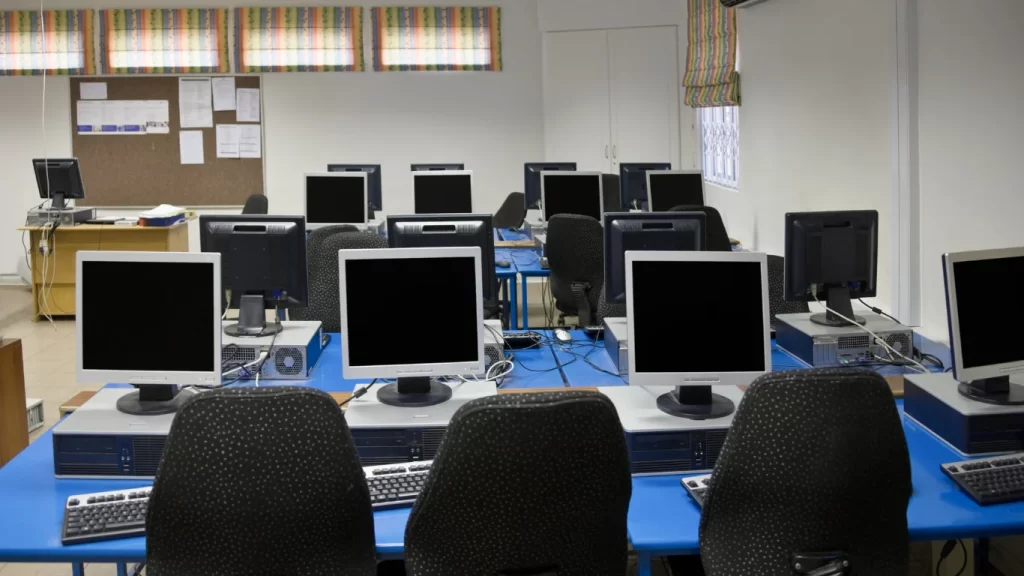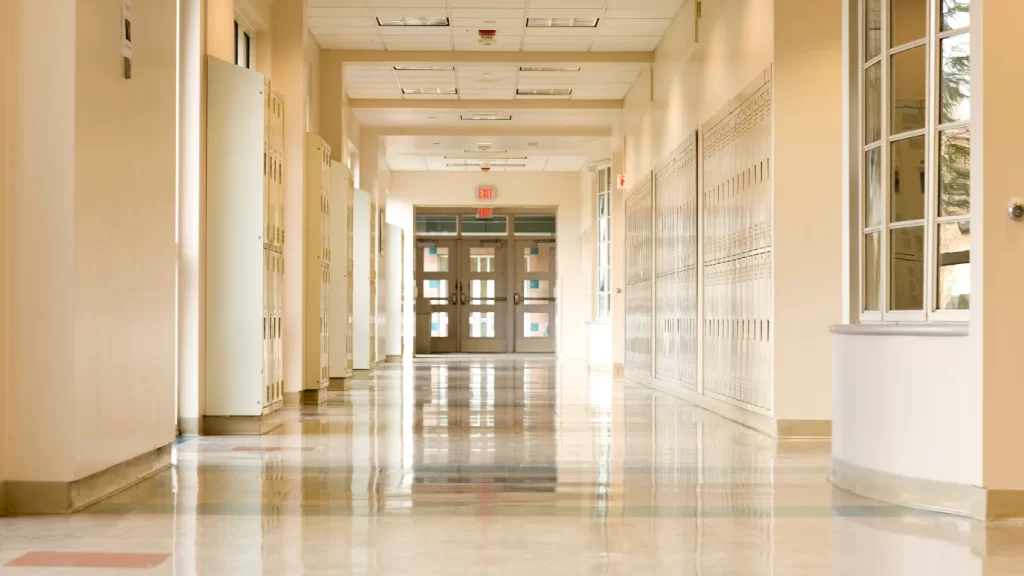Schools often implement restrictions on their Wi-Fi networks, blocking access to certain websites and platforms to safeguard students, preserve focus, and manage bandwidth effectively. This is where the role of VPN for School Wi-Fi becomes crucial. VPNs, such as NordVPN, are instrumental in bypassing these restrictions, offering students the freedom of unrestricted Internet access. Among the key considerations for selecting the best VPN for School Wi-Fi in 2024 are security features, privacy safeguards, and streaming capabilities.
As the digital landscape in education continues to evolve, the demand for reliable VPN solutions for school Wi-Fi networks is on the rise. NordVPN stands out as a leading option, thanks to its comprehensive features and a 30-day money-back guarantee, while alternatives like Surfshark and ExpressVPN provide cost-effective and secure services respectively. With the right VPN for school Wi-Fi, students can navigate online learning resources seamlessly, making an informed choice paramount for enhancing their educational experience.
Understanding VPNs and Their Importance for School Networks
In the context of school networks, Virtual Private Networks (VPNs) serve as a crucial tool for both security and accessibility. A VPN encrypts your internet presence, effectively shielding you from potential cyber threats prevalent on public Wi-Fi networks. This encryption is vital in environments like schools where the Wi-Fi is shared amongst many users, making it a prime target for hackers.
Additionally, VPNs mask your real IP address, substituting it with one from the VPN server. This action not only enhances privacy by preventing websites from seeing your actual location but also allows for the bypassing of content restrictions. Schools often implement blocks on certain websites to limit distractions or manage bandwidth, but this can inadvertently restrict access to educational resources. By rerouting your traffic through a server in a different location, VPNs enable you to access online materials that may otherwise be blocked.
Key Benefits of VPNs on School Networks:
- Enhanced Security: Encrypts data traffic, safeguarding against potential breaches.
- Privacy Protection: Masks browsing history and online activities from network administrators.
- Access to Restricted Content: Enables bypassing of school-imposed internet restrictions.
It’s important to choose a reputable VPN service, as the provider will have access to connection logs. Moreover, adherence to the school’s acceptable use policies and local laws is paramount when utilizing a VPN on school Wi-Fi.
Top Benefits of Using a VPN on School Wi-Fi
Utilizing a VPN for School Wi-Fi offers several unparalleled advantages, ensuring students can navigate the digital landscape securely and unrestrictedly. Here are the top benefits:
- Privacy and Security Enhancement:
- IP Address Concealment: A VPN hides your IP address by replacing it with the VPN server’s address, making it out of the question for websites and services to track your real location and ensuring your online anonymity.
- Encrypted Internet Traffic: By encrypting data, VPNs make it challenging for third parties, including network administrators, to intercept or decipher your online activities, protecting sensitive information against potential cyber threats.
- Private Browsing History: Ensures your web visits remain unseen by school network administrators, safeguarding your online privacy.
- Unrestricted Access and Identity Protection:
- Bypassing Content Restrictions: VPNs allow access to geo-restricted content and school-blocked websites by appearing to access the internet from a different location.
- Protection on Public Wi-Fi: Public networks at schools are susceptible to cybercrime; VPNs offer an added layer of security against identity theft and data breaches.
- Compliance and Considerations:
- Adherence to Policies: While enjoying enhanced privacy and access, it’s crucial to respect the school’s acceptable use policies and local laws.
- VPN Provider Transparency: Remember, using a VPN does not equate to complete anonymity since the VPN provider can access connection logs. Choosing a reputable VPN with a strict no-logs policy, like NordVPN, is essential for maintaining privacy.

VPN or Proxy? Don’t know the difference? you should read this article.
Choosing the Right VPN for School Wi-Fi
Choosing the right VPN for School Wi-Fi requires evaluation of several key factors to ensure optimal performance, security, and compatibility. Here’s a streamlined approach to making an informed decision:
1. Security and Privacy Features:
- Encryption Standards: Opt for VPNs like NordVPN or ExpressVPN that offer next-generation encryption to protect your data.
- No-Logging Policy: Ensure the VPN has a strict no-logs policy, crucial for maintaining your privacy. Providers such as CyberGhost and Private Internet Access are known for their commitment to user privacy.
2. Performance and Compatibility:
- Server Count and Locations: A higher number of servers improves speed and reliability. NordVPN and Surfshark boast extensive server networks.
- Compatibility with Devices: Check for support on Chromebooks and other devices. ExpressVPN and Private Internet Access offer broad compatibility, including browser extensions and Android apps.
3. Cost and Value:
- Student Discounts: Look for VPNs that offer discounts to students, like NordVPN’s 15% discount for individuals aged 18-26.
- Free Trial and Money-Back Guarantee: Providers like NordVPN and CyberGhost offer free trials and money-back guarantees, allowing you to test their services risk-free.
By considering these factors, students can choose a VPN that not only bypasses school Wi-Fi restrictions but also ensures robust security, excellent performance, and compatibility with their devices, all while being mindful of budget constraints.
How to Set Up and Use a VPN on School Wi-Fi
Setting up and using a VPN for School Wi-Fi involves a few straightforward steps to ensure you can bypass restrictions securely and efficiently. Here’s how to get started:
1. Initial Setup and Installation:
- Visit your chosen VPN provider’s official website and create an account.
- Download the VPN client compatible with your school computer’s operating system.
- Install the VPN app, launch it, and log in with your credentials.
- Select a server within your country for optimal speed and to bypass school Wi-Fi restrictions effectively.
2. Connecting and Testing Your VPN:
- Click the “Connect” button within the VPN app to establish a secure connection.
- Before testing the VPN connection, ensure that it is working correctly by pinging the server using both its IP address and fully qualified domain name..
- If you encounter any issues, clear your browser’s cache and cookies, or check for DNS problems.
3. Security and Maintenance:
- Implement security fundamentals by disabling unnecessary VPN accounts, requiring complex passwords, enabling multi-factor authentication, and monitoring for unauthorized connections.
- Confirm IP routing is enabled on the VPN server and that there’s a valid bank of IP addresses to assign to clients.
- Disconnect from the VPN server when it’s no longer needed to maintain security.
By following these steps and troubleshooting any potential challenges, students can enjoy unrestricted and secure access to online resources, making the most of their educational experience.

Potential Challenges with VPNs on School Networks
Navigating the potential challenges of using VPNs on school networks requires an understanding of both the technical and policy-related hurdles. Here are key considerations and strategies:
- Technical Limitations and Security Risks:
- Administrative Rights: Some school computers restrict software installation without administrative permissions.
- Security Vulnerabilities: VPNs can introduce risks like malware, DDoS, and spoofing attacks. Moreover, they provide an all-or-nothing access, which can be a significant security loophole.
- Detection and Blocking: Schools can detect VPN usage through deep packet inspection and monitor network traffic patterns. They might block ports known for VPN traffic, although configuring VPNs to run on non-standard ports can bypass these blocks.
- Policy Compliance and Ethical Considerations:
- School Policies: It’s crucial to adhere to the school’s ICT acceptable use policy. Violating these can lead to disciplinary actions.
- Management and Accountability: Lack of accountability with VPNs makes monitoring difficult. Schools should have processes for managing users attempting to bypass online safety measures, using tools like School Manager for insights and strategies.
- Best Practices for Responsible VPN Use:
- Choosing the Right VPN: Opt for VPNs like CyberGhost, known for additional security and privacy without compromising the network’s integrity.
- Self-Restraint: Avoid drawing attention to VPN usage. If detected, claiming ignorance might be a strategy, though not foolproof.
- Network Segmentation: Implementing strict network segmentation with firewalls can protect networks while providing necessary access.

Check out our article about the best VPNs for 2024 here!
FAQs
What VPN is effective at bypassing school Wi-Fi restrictions?
NordVPN is highly effective at bypassing school Wi-Fi restrictions due to its capability to unblock a variety of sites and streaming platforms without much trouble.
What are some VPN options suitable for use at school?
Several VPNs are suitable for school use, including ExpressVPN, which is known for its reliability and extensive server network; CyberGhost, which offers strong privacy policies ideal for student activists; ProtonVPN, which has advanced features and a limited free plan; and Private Internet Access VPN, which is well-suited for students with multiple devices.
Is it legal to use a VPN on school Wi-Fi?
Yes, it is 99.99% legal to use a VPN on school or college Wi-Fi in most countries, provided that you are not engaging in any illegal online activities.
Why might a VPN not connect to school Wi-Fi?
School network administrators often block VPN access to maintain control over the network. If you’re having trouble connecting, check if your school has an “Acceptable Use Policy” that restricts the use of websites or proxies. If the block is specific to certain websites, such as Facebook, using a VPN like Hotspot Shield might allow you to access those sites.
Wrapping Up
Navigating the complexities of accessing unrestricted internet through school Wi-Fi presents both challenges and opportunities for students. As we have explored, leveraging VPN technologies such as NordVPN, Surfshark, and ExpressVPN offers a pathway to overcoming these hurdles, enabling secure, private, and unrestricted access to online resources. By carefully selecting a VPN provider that aligns with key considerations such as security features, privacy safeguards, and compliance with school policies, students can significantly enhance their educational experience without compromising their online safety.
The journey towards achieving an optimal balance between internet freedom and security within educational environments is ongoing. It is imperative that students, while harnessing the benefits of VPNs, remain conscientious of the ethical implications and adhere to acceptable use policies. As the digital landscape develops, so too will the solutions to these challenges, suggesting a continuous need for awareness, adaptation, and responsible usage of technology in pursuit of academic excellence.





